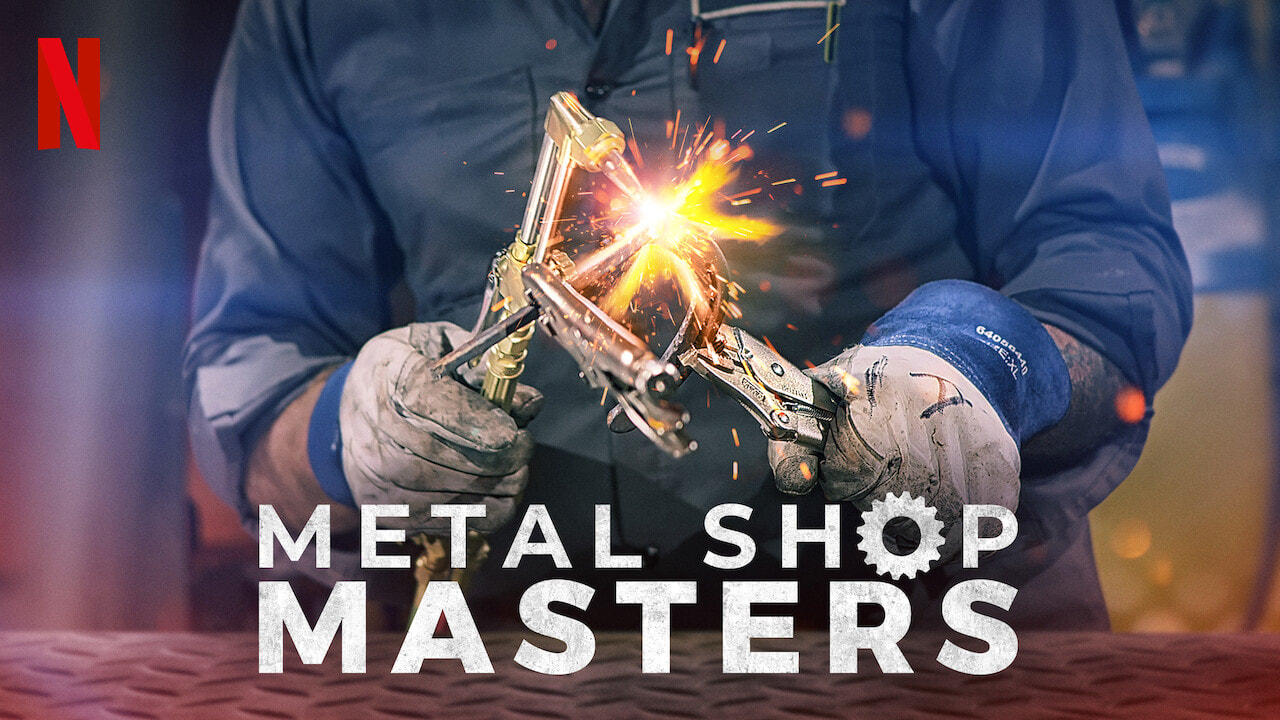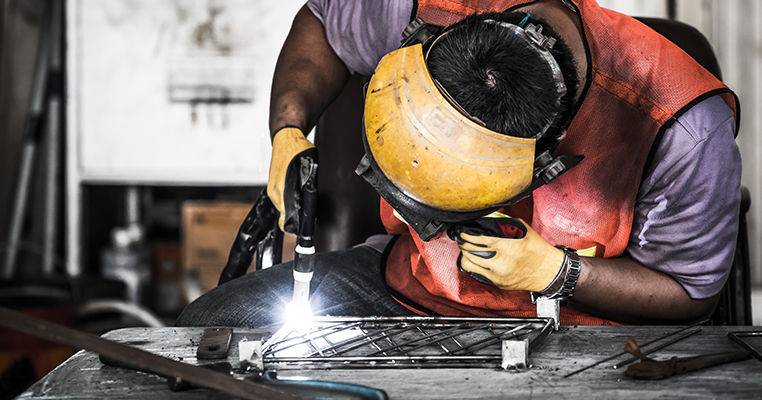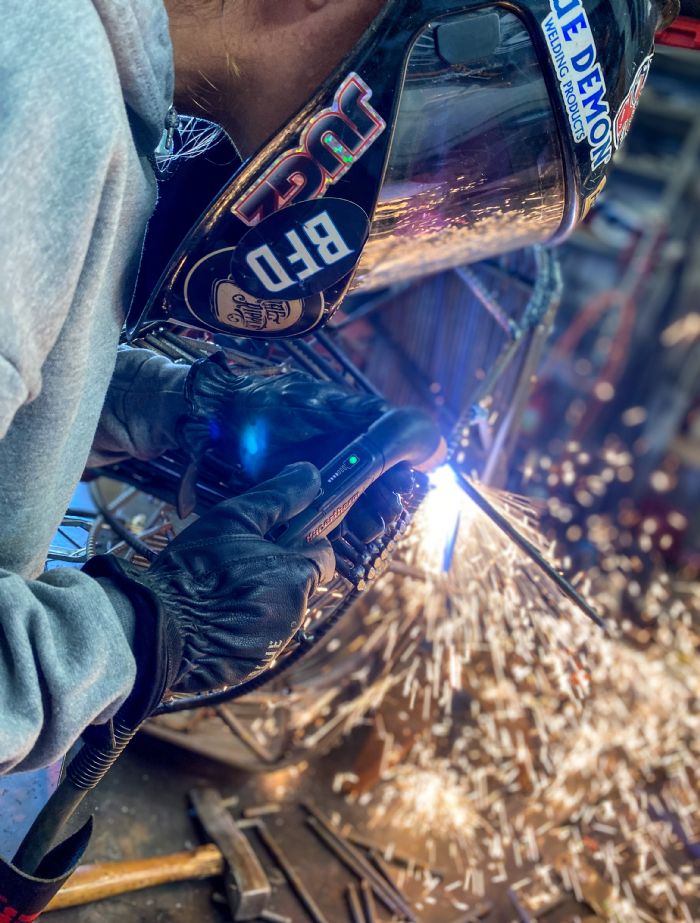To become a welder in Texas, you must complete a vocational training program or an apprenticeship and obtain a certification from the Texas Department of Licensing and Regulation (TDLR). In addition, you may need to pass a background check and a drug test.
Welders can pursue various specializations such as structural welding, pipe welding, or underwater welding, and additional certifications may be required depending on the specialization. Welders in Texas can find employment opportunities in industries like construction, manufacturing, and oil and gas.
With the demand for skilled welders expected to grow, pursuing a career in welding can lead to stable employment and potential for growth.

Credit: www.frankledbetter.com
1. Introduction to Welding
Discover how to become a welder in Texas by mastering the essentials of welding in our comprehensive introduction to the trade. Gain valuable skills and knowledge to kickstart your welding career in the Lone Star State.
1.1 What is Welding?
Welding is a versatile and essential process that joins materials together, typically metals or thermoplastics, by melting and fusing them. This method creates a strong bond between the materials and allows for the construction of various structures and products. Welding is used in a wide range of industries, including construction, manufacturing, automotive, and aerospace.
1.2 Why Become a Welder in Texas?
There are several compelling reasons why becoming a welder in Texas can be a rewarding career choice. Texas has a robust economy with numerous industries that rely on welding expertise. The state’s booming oil and gas sector, as well as its thriving manufacturing and construction industries, offer ample opportunities for welders to find employment.
Additionally, Texas is home to many welding schools and training programs, making it convenient for individuals who are interested in pursuing a career in welding. These programs provide comprehensive training and hands-on experience, ensuring that aspiring welders are prepared for the demands of the job.
Furthermore, the demand for skilled welders in Texas is projected to grow in the coming years. As aging infrastructure requires maintenance and new projects continue to emerge, there is a constant need for welders who can fabricate, repair, and maintain various structures and equipment.
Becoming a welder in Texas not only offers job stability but also the opportunity for career advancement. Welders who gain experience and acquire additional certifications can explore specialized areas such as underwater welding or become welding inspectors, supervisors, or instructors.
Moreover, welding is a physically demanding profession that requires precision, attention to detail, and problem-solving skills. For individuals who enjoy working with their hands and appreciate the sense of accomplishment that comes with creating something tangible, welding can be a fulfilling career path.

Credit: blog.red-d-arc.com
2. Education and Training Requirements
2. Education and Training Requirements
Getting the right education and training is essential for anyone aspiring to become a welder in Texas. With the right qualifications, you can increase your employability and open up a world of opportunities in this exciting field. Whether you’re just starting out or looking to enhance your skills, here are the various education and training options available to you.
2.1 High School Diploma or Ged
Earning a high school diploma or GED is the first step towards becoming a welder in Texas. This foundational qualification demonstrates your ability to meet educational requirements and shows potential employers your dedication and commitment. Strong math and science skills acquired during high school can also prove to be invaluable in the welding profession.
2.2 Vocational or Technical School
Attending a vocational or technical school that offers welding programs is a fantastic way to gain the practical knowledge and hands-on experience necessary to succeed in this field. These specialized schools equip you with the skills needed to operate welding equipment, read blueprints, and practice various welding techniques safely and efficiently.
2.3 Apprenticeship Programs
Apprenticeship programs provide aspiring welders with a unique opportunity to learn on the job while earning a wage. Through these programs, you can work under the guidance of experienced welders who can teach you the trade secrets and help you refine your skills. Apprenticeships typically consist of a combination of classroom instruction and hands-on training, giving you a well-rounded education.
2.4 Continuing Education
Continuing education is crucial in the welding industry, as new technologies and techniques are constantly emerging. By staying up-to-date with the latest advancements, you can ensure that your skills remain relevant and in-demand. Ongoing training and certifications demonstrate your dedication to your craft and can lead to better job prospects and higher earning potential.
Whether you start with a high school diploma, attend a vocational school, participate in an apprenticeship, or pursue continuing education, each step you take towards becoming a welder in Texas brings you closer to a rewarding career. With determination and the right training, you can weld your way towards success.
3. Certification and Licensing
Obtaining the necessary certification and licensing is crucial for individuals aspiring to become a welder in Texas. These credentials not only validate your competency but also assure potential employers of your skills and expertise. In this section, we will explore the two primary requirements for welding professionals: AWS Certification and Texas Commission on Environmental Quality (TCEQ) Licensing.
3.1 Aws Certification
The American Welding Society (AWS) offers various certifications that are widely recognized and highly regarded in the welding industry. These certifications demonstrate your proficiency in specific welding techniques and ensure you adhere to industry standards. Attaining AWS Certification can make you stand out from other welders and enhance your employment prospects.
3.2 Texas Commission on Environmental Quality (tceq) Licensing
Aside from AWS Certification, welders in Texas may also need to obtain licensing from the Texas Commission on Environmental Quality (TCEQ) depending on the type of welding work they intend to perform. The TCEQ ensures that welders comply with environmental regulations and operate in a manner that minimizes negative environmental impact.
In order to obtain a TCEQ license, welders must meet specific requirements related to their intended welding activities, such as air emissions, waste management, and pollution control. Welders must also complete any required training or exams to demonstrate their knowledge and understanding of these regulations.
It is essential for aspiring welders in Texas to familiarize themselves with the specific licensing requirements for their type of welding work and ensure they have the necessary qualifications before starting their careers. Compliance with the TCEQ’s regulations not only ensures the protection of the environment but also promotes sustainable and responsible welding practices.
4. Career Opportunities and Advancement
For individuals considering a career in welding, Texas offers a wide range of job prospects and opportunities for advancement. Whether you’re just starting out or looking to take your welding career to the next level, there are several avenues to explore in this dynamic field.
4.1 Job Prospects for Welders in Texas
With so much industrial activity in Texas, job prospects for welders are promising. According to the Bureau of Labor Statistics, the employment of welders, cutters, solderers, and brazers is expected to increase by 5% in the state from now until 2029. This indicates a steady demand for skilled welders in Texas.
From construction and manufacturing to oil and gas industries, welders are needed in various sectors. Some of the key industries that provide abundant job opportunities for welders in Texas include:
- Oil and Gas
- Aerospace and Aviation
- Construction
- Automotive
- Manufacturing
With such diverse industries, welders in Texas have the flexibility to choose the sector that aligns with their interests and goals.
4.2 Advancement Opportunities
Welding offers promising career growth opportunities for professionals who are willing to expand their skills and knowledge. As you gain experience and proficiency in welding, you can explore various avenues for advancement, such as:
- Supervisory Roles: With the right qualifications and experience, you can advance to become a welding supervisor, overseeing a team of welders and ensuring quality work.
- Inspectors and Quality Control: By acquiring additional certifications and training, you can transition into roles that involve inspecting welding work for compliance with industry standards and ensuring top-notch quality.
- Welding Engineering: For those interested in the technical aspects of welding, pursuing a degree in welding engineering can open up opportunities to design welding processes and procedures.
These are just a few examples of the many advancement opportunities available to welders in Texas. By continuously upgrading your skills and staying updated with the latest industry trends, you can carve out a successful and fulfilling career in this field.
4.3 Specializations within Welding
Welding is a diverse field, offering numerous specializations that allow welders to focus on specific areas of expertise. Some popular specializations within welding include:
| Specialization | Description |
|---|---|
| Underwater Welding | Performing welding tasks below water surfaces, often in offshore or marine environments. |
| Pipe Welding | Specializing in welding pipes used in industries such as oil and gas, plumbing, and construction. |
| Structural Welding | Focusing on welding large-scale structures like bridges, buildings, and infrastructure. |
| Aircraft Welding | Working on the fabrication and repair of aircraft components, ensuring safety and precision. |
By choosing a specialization, you can tailor your career to your specific interests and niche within the welding industry, ultimately setting yourself apart from others in the field.
4.4 Entrepreneurship in Welding
Welding also presents opportunities for entrepreneurial ventures, allowing welders to start their own businesses and become self-employed. With the right skills and a solid business plan, you can establish a welding shop or offer mobile welding services.
As an entrepreneur in the welding industry, you have the freedom to take on a variety of projects and clients. From custom fabrication to repair and maintenance services, owning a welding business gives you the flexibility to pursue diverse opportunities and build a thriving enterprise.

Credit: www.metalformingmagazine.com
Conclusion
Becoming a welder in Texas requires dedication, training, and hard work. By following the steps outlined in this guide, you can set yourself up for success in this fulfilling career. Remember to research local welding programs, gain hands-on experience, and obtain the necessary certifications.
With determination and the right skills, you can forge a path to a rewarding future as a welder in the Lone Star State.
